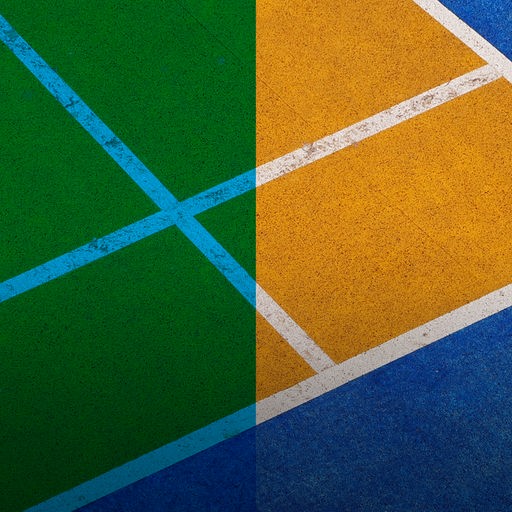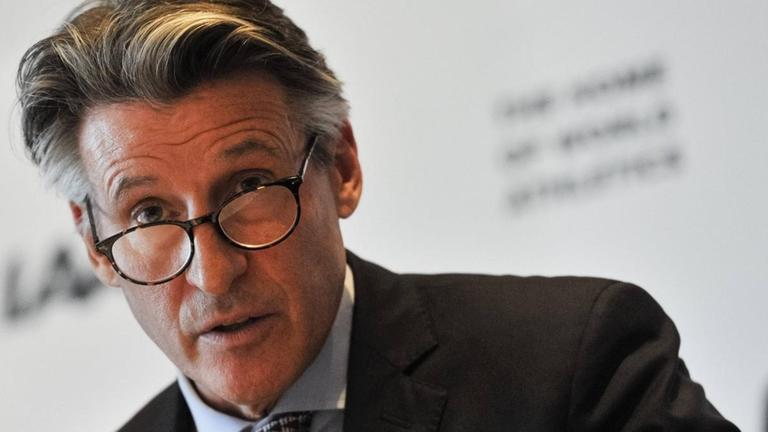
Robert Kempe: You are here because you're invited by a group of the German parliament to speak about good governance and compliance in the world of sport. When we look at the past of IAAF there are many, many problems in the federation, when it comes to doping, when it comes to corruption. So why are you at the moment a credible speaker to talk about these issues?
Coe: Look this is not a unique request. I've spoken to parliaments around the world, to the Australian Sports committees, to European sports committees. The British sports committees themselves, and I think it's a recognition that, yes, the high-profile challenges that we confronted at the beginning of my presidency were the impetus for big change. And we're not sitting saying that we have achieved everything that we want but I think our sport in terms of governance is unrecognisable from where it was two or three years ago: the rewriting of the Constitution 200 changes that have created the foundations for safety within the headquarters roles and responsibilities, the rebalancing of the presidential powers which was really important. The Creation of the Athletics Integrity Unit that has now produced an independent organisation that runs our anti-doping processes and not just looking at anti-doping, looking at corruption, looking at age manipulation, transfers of Allegiance, all the challenges that global sport confronts. I think we have a credible story to tell and I'm always pleased to be given the opportunity to explain how the reforms took place. The journey that we embarked upon and still the areas that we need to address.
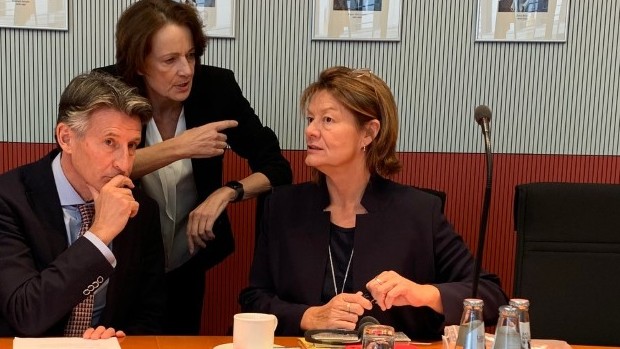
Sebastian Coe is president of the International Association of Athletics Federations (IAAF). 2015 the 62 years old Briton was elected when the federation was in a crisis. The IAAF had a huge scandal at that time when covering positive doping tests for money was revealed. The main responsible person behind that scheme was Lamine Diack, predecessor of Sebastian Coe.
"Make sports relevant in the lives of young people"
Kempe: So, when you became president at this time, the IAAF was on the ground . We all know how difficult reforms in the world of sports could be. How difficult was it for you personally to initialize new reforms?
Coe: And that is a very good question. I think, the point I would make of course is that before I became president, I had a very clear view that the sport needed to change and that we needed to create foundations that were firm and solid. Because unless you have those firm solid foundations, you're not then able to do all the other things that you need to do in your sport to change it, to make it more exciting, more accessible to young people, to have a relentless focus on innovation and formats and all the work that we're doing now with Diamond League. All those things could not take place unless you had really firm solid foundations.
You know the house needs supporting walls and it's those supporting walls that allow you to do all the things that you want within the house. And for me the reforms were based on three really key questions. The first was how does your sport make decisions that are clear and transparent and understood by everybody within the ecosystem of your sport? The Second question was who do you want in your sport? And that is a very big question. And that resulted in us creating a vetting panel so that you know we have a good example: we have the elections in our sport. This year in Doha just before the World Championships at our Congress everybody that will be standing for election will go through a vetting process including the president. So, it was really important that we answered those two questions. I think in large part we have, there's still some work to do. That then allows you to address the third question which is: how do you evolve your sport? How do you make it exciting and relevant and salient in the lives of young people. And we've got to get out of the habit.
Sport is far too keen on thinking that its competition comes from other sports and we sit here saying well you know what's swimming and what's gymnastics doing, what's football doing? Actually, that's not our competition. Our competition are all the other things that are now in the lives of young people. My son came here with me to the fantastic European Championships in this city just a few months ago. He watched sport during the period that sport was on and then was off to films, to clubs to theaters, to you know. So, it's a world that we have got to accept in sport that our competition isn't just uniquely in sport. It's from all the other things and our sport has to address that. And I guess that's really where the journey now has to start in earnest. What is it that we do in our sport that makes us relevant in the lives of young people when there are so many other things that are attracting their attention.
"I want to know what's going on in the lives of young athletes"
Kempe: But every progress or change does only work when you clean up in your own house and when you clearly look what happened in the past. Everything starts with the Russian doping scandal in your federation. You are still dealing very strict with this issue. How is the situation now?
Coe: I think it was very important as a federation. And look, I'm certainly not going to gloss over this. You know over the course of four years in Russian athletics we had something like 140 positive tests. So, this had to be addressed. And in large part the drive for the Athletics Integrity Unit, the work around our governances, particularly in anti-doping, were really important. The challenge that remains actually in large part is not just about what are the codes, what are the disciplines, what are the sanctions that are available. You also have to change the culture. And this is not just uniquely a Russian issue. You know you have to have a generation of coaches wherever they are plying their trade, that genuinely believe that it is possible through smart, intelligent coaching to take an athlete from the street out there or the playground from at the age of 11 to an Olympic Stadium at the age of 21, 22 and to do it with integrity.
And it is possible because we have great role models in the past that have done that. But we have to make sure that alongside the sanctions, the testing, the blood passports, the technology that we are now using which should tell every athlete that if you want to cheat, you will get caught. And we are very serious about this. But we also have to recognize that there are educational programs. You know we have a values commission that I created within the IAAF. Why? Because I'm absolutely of the view that I want to know what's going on in the lives of young athletes when a bad decision is made. What are the external influences? Is it coaching? Is It family? Is it agents? Is it, that a federation is turning a blind eye on occasions to some of the mutations, some of the poor influences that are in the lives of those athletes. So, I see this as a whole... I see this as a cultural issue as much as it is trying to close the door and making sure that we get rid of the cheats.
We need to create an environment that is safe and secure for young competitors. I think there's another important element here for me as well. Look, as parents or grandparents or people that have an interest in young people you know what is it that in our private moments, we are most worried about. I know as a parent what it is: it's that my children are not in a predatory environment. We have to make sure that when parents are having a very big say you know they have an influence on the sports that their children take up that they know that we are a sport that takes the welfare of their athletes really seriously whether it's about safeguarding whether it's about predatory environments whether it's about anti-doping. We have to be absolutely at the center of those crops that crossroads of discussion.
"Do everything to separate the clean athletes from the tainted system"
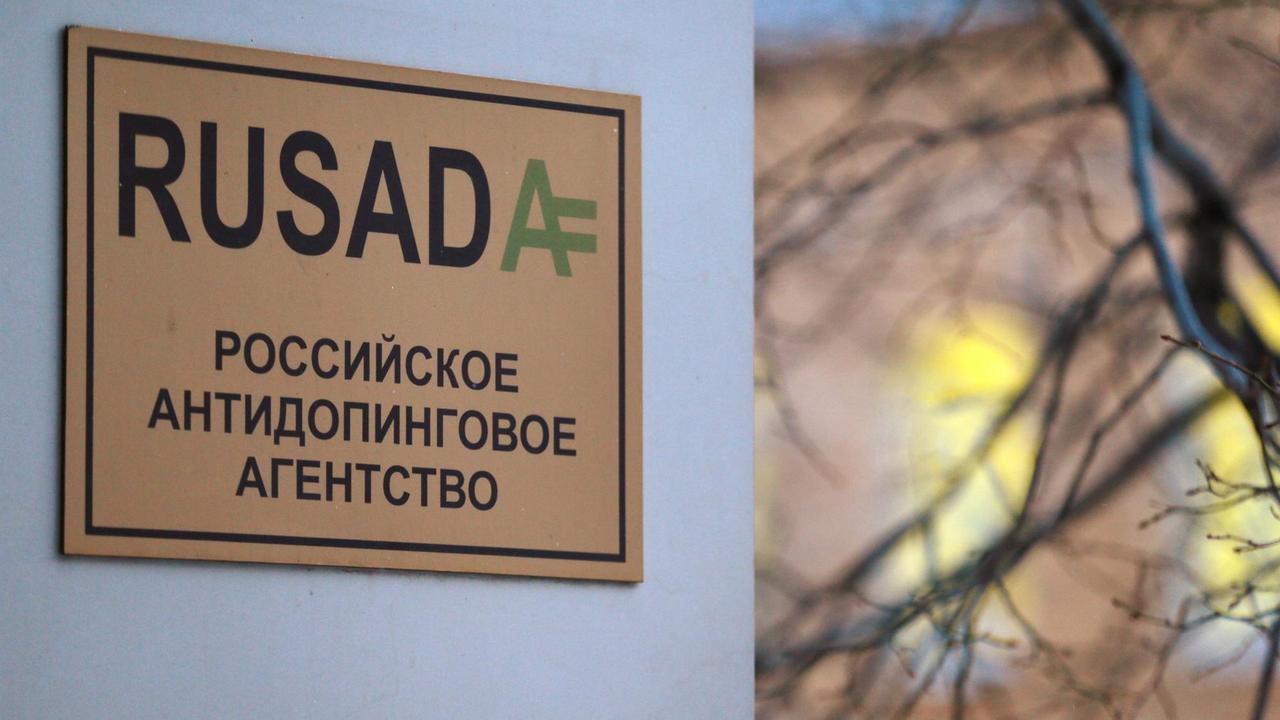
Kempe: Let's come back to the question how you are dealing with the Russian Federation. When we look at the situation now: RUSADA was reinstated by WADA. When you follow other International Federations you get the feeling that for them this problem is over. So they're handling this in a different way. So why is IAAF at the moment the strictest federation?
Coe: I've never benchmarked what we've done as a federation or what I've done as a federation president against what other federations have done. That is a matter for them. I think that the process that we entered with the independent task force that has gone about implementing the five point criteria and that's really crucial - that criteria was not just thrown on the table in a take it or leave it fashion. It was actually agreed with the then Russian Federation. Crucially, that task force has reported back to the council and the council has accepted those recommendations at each and every occasion.
I think there is also another important point that is often overlooked. Russian athletes are still competing. We have found a way to fulfill one of the underpinning philosophies for me and that is to do everything that you possibly can to separate the clean athletes from the tainted system. That's why we created the ANA, authorized neutral athletes. That's why 70 of those athletes were competing as neutral athletes last year and I expect a whole lot of them this year to be competing. They are assessed on an individual case and to the best of our knowledge they are competing because we believe that they are clean, they're doing it properly and that we're not putting in jeopardy the ambitions of other clean athletes elsewhere. So that is why we have done what we've done, we've done it in a clear and transparent way.
Every time the task force has reported within minutes of that report, as you will know the report is on the website. You know, in all it in all its detail, it's a system that served us well. I see no good reason why we should depart from that. Clearly the process that the World Anti-Doping Agency is now in which is thumbing its way through the information that it now has, the data and then ultimately the samples that are due to be with them in June is of interest to us and we need to make sure that that information is bona fide, that it is in a form that the World Anti-Doping Agency are satisfied and if there is anything in there that is of interest to us around our sport then we have the Athletics Integrity Unit to look at it. I think it's important that we stick to that process.
Kempe: But doping is not only a unique Russian problem. You spoke about your independent Integrity Unit you put in place. The unit followed 118 eighteen cases in their first year.
Coe: Another very important principle of transparency is that you are now able to follow that. You know we've removed the shroud of secrecy. Those cases are out on our website. You know I can tell you in the first year of the Athletics Integrity Unit up until April of last year there were 10.000 Samples taken, 6.000 of them are out of competition, four thousand were in competition across our hundred and fifty accredited IAAF events. You know what the cases are that are open you know what cases they're looking at. So, it's very important that the transparency is there, and the Athletics Integrity Unit can get on with its work without political interference.
"We are not in the Elysian fields"
Kempe: But how do you evaluate the doping problem in general in athletics?
Coe: I think it is improving. I'm not sitting here saying that we are as you might say in Britain in the Elysian fields. We're not. We still have a long way to go but our technology is better than it's ever been. The systems are safer and securer than they were when I was competing or even 10 years ago. We have technology that's available to us now that wasn't available. And the message I think has to be clear to athletes that if you choose to step outside the rules and codes and conducts of your sport particularly around anti-doping there is every chance you will get caught.
Kempe: Are you satisfied when you look at other federations how they are handling the Russian case...
Coe: It's not for me to observe. That's a matter for them. And you know, each federation has different challenges. Each Federation has a different history. All I will say is that we have done what we've done because we have genuinely believed that it was in the right interest of the sport. But we've never benchmarked our own approach to this because other federations have or haven't done you know various things. So, it's really a matter for other people.
Kempe: An organisation who dealt with the Russian case a little bit more different than your federation was the IOC. Lord Coe, you were chief organiser of the London Games in 2012. You are chairperson of the British Olympic Association and president of the International Athletics Federation. But you are not an IOC member. What do you think about that? I mean you were a big friend of IOC president Thomas Bach.
Coe: No, no, it doesn't concern me, because look, I'm in endearment of the Olympic movement. Everything that I have done from the age of 11 has effectively been in an Olympic sport or bidding for a games or writing about a games or chairing an organizing committee within a games and I'm president of the you know the number one Olympic sport. I sit on the Olympic summit, I Sit on the Council of ASOIF and I sit as a council member on the Association of National Olympic Committees, so I represent my sport in all the different fora, that matter to the sport. So that's not really a matter for me.
Kempe: But all your predecessors were members of the IOC. So, isn't it strange that you are not?
Coe: I don't sit there pondering that. Actually, I have a mountainous job of work to do. And again, I just repeat everywhere that my sport needs representing I am representing it and in every governance structure within international within the international sporting landscape.
"Qatar? Sport can shine a light on issues that often politicians will step aside"
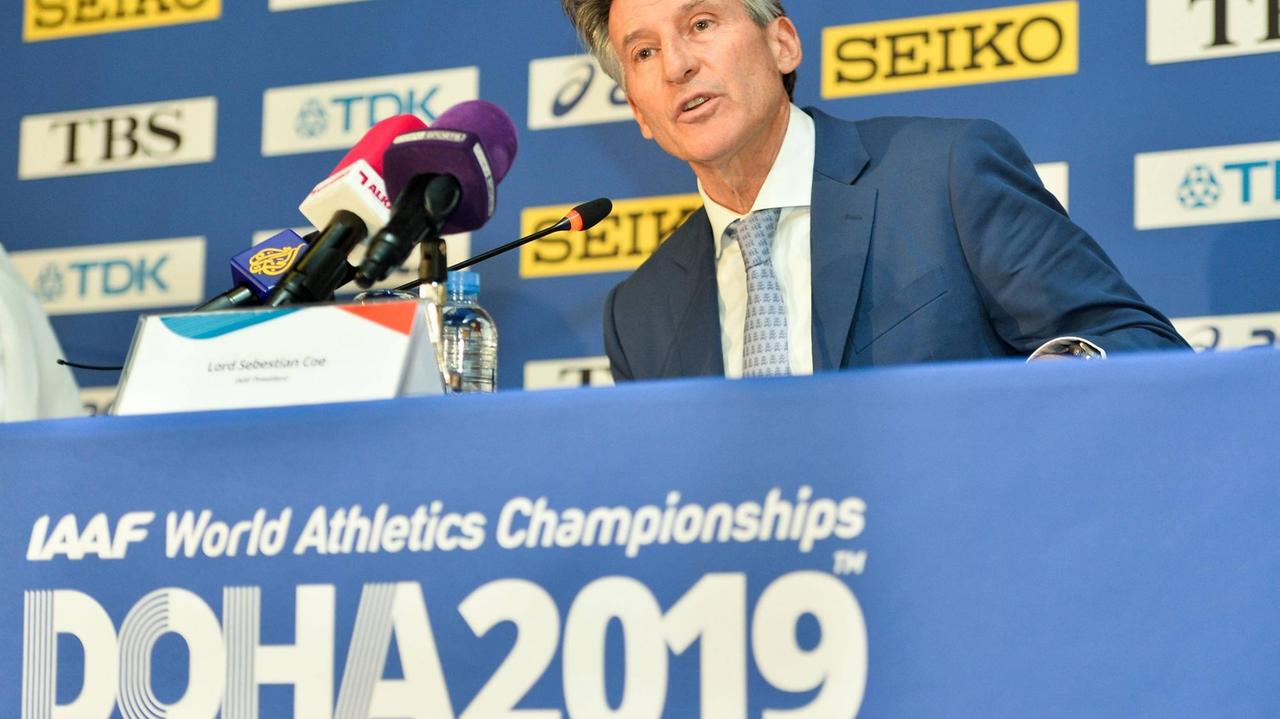
Kempe: In autumn this year there will be the Athletics World Championships in Doha.
Coe: Yes.
Kempe: Qatar is a country which does invest a lot of money in sports. Human Rights Organizations point out that this is a part of whitewashing of Qatar. When it comes to workers’ rights to labor rights... Is it a good choice in your point of view for world of sports to go there with big mega events.
Coe: Qatar does invest a lot in sport. It's been hosting international sporting events for as long as I can remember. And it's been doing so in a lead role in the region. And I think the first major event internationally was hosted there in the early 90s. You know we've had a World Indoor Championships there and it has invested a lot in international track and field, both in research and in practice.
The broader point that you raise is of course an important one and we shouldn't be oblivious to political situations and circumstances globally. Look, a sport that has 213, 214 member federations, is inevitably a sport that covers the globe. And there will be political situations and structures and fragilities all the time. We have to be very clear in sport that, and I have always fervently believed, that sport has always been a driver of social and political change. Actually, more so in most circumstances than run of the mill politicians. You know sport can discuss issues it can shine a light on issues that often politicians will step aside or tiptoe around because they have other agendas. You know they don't want to lose trade relationships. They don't want to lose all sorts of things. We can do this. And sport has consistently done it and I could give you any number of examples of the way sport has moved the social and political agenda on in a way that that conventional politicians haven't actually achieved.
And of course, the nature of a country has to be of interest. You know we want our stadiums and our facilities built in safe secure environments and we do want issues around health and safety and workers’ rights to be addressed. And I know through the London years as chairman of the Organising Committee we worked very closely with international labour teams and you know on occasions even Amnesty International so we're not... Sport actually provides a bigger opportunity to make those changes. And for sport to shine a spotlight on the need for those changes. And I think that it is much better for sporting organisations to be engaged globally than not. And I think it becomes very dangerous if you start picking your sporting friendships and your sporting partnerships on current political fragilities. I'm sure that there were many countries that came to the London Olympic Games that did not approve uniquely or entirely about British foreign policy, but they came, and they competed. And sport was the winner.
Kempe: So, you don't see the fear that your event the World Championships in Doha could be abused by the Qatari government?
Coe: No. Look, we are working extremely closely with the organising committee. Our responsibility is to deliver a great world championships. Our responsibility is always to enlarge the global footprint of our sport. This is the first time that a World Championships has been in that region we've had indoor championships but this is the first time a World Championships has been in that area. And you know in the last 40 years when I've been going to sports conventions sports congresses and you know we've all stood up and heard and sat listening to speeches about we've got to globalize sport. We've got to give opportunities for young people. And you get a good cheap clap for lines like that. But actually, you've got to deliver on that. And sometimes that comes with challenges. And that will come by taking your sport into areas where, yes, there are issues, there are difficulties, there are challenges. But sport overwhelmingly is a cause for good. And you can see it in so many different cases. We're not the universal panacea. We're not a political structure, but we can get closer to that change than most other activities.
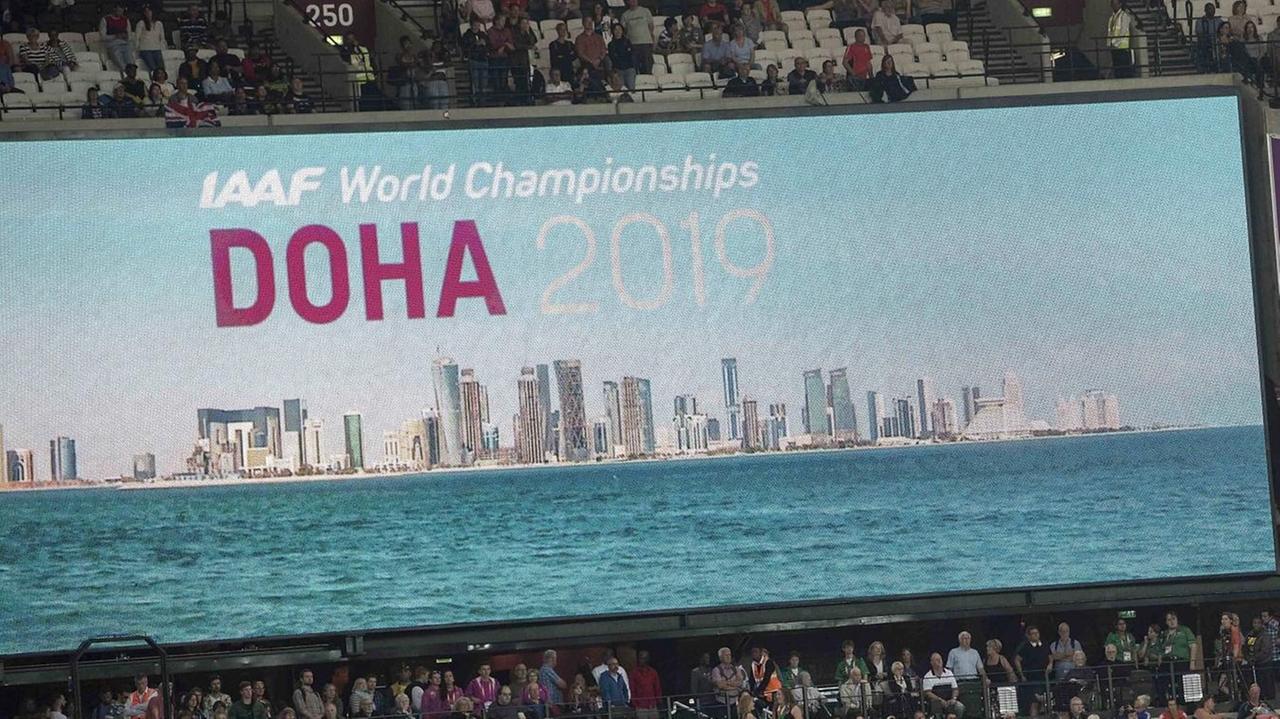
Kempe: US prosecutors are looking deeper in the election process and how Qatar was awarded with the World Championships. Do you think that this could raise some problems for the IAAF prior to the world championships?
Coe: We've always been very clear in any world championships or any bidding process that if we are ever given evidence that gives us cause for concern about the integrity of a bid or a championships then we would of course review those championships. I think I've been probably answering that question for two or even three years now. So, yes of course we take that very seriously. But we have not been given anything at this moment to give us concern.
Kempe: Your predecessor was Lamine Diack who is at the moment alleged to be one of the key role players when it comes to corruption in the Olympic world of sports. Are you in contact with the prosecutors?
Coe: No, our federation has a status within the prosecution process called "partie civile". So, in simple terms we have made it really clear from the very outset that we wanted to cooperate with everything that can bring this unhappy sad episode in our sport to a close when it comes to the specific Olympic issue that you raised. I'm not in a position to remotely give a judgment one way or the other on that.
Kempe: But you are sometimes shocked when you see what is on the table? I mean for years, you were one of the vice presidents in IAAF and you know him very well...
Coe: Look I have no insight at all into any of the issues that seem to be surfacing around Olympic bids. If there are issues within our own sport and we've had the ethics board review of that episode, we have the ongoing French prosecution. So, this is a case of sitting and waiting for that process to run its course.
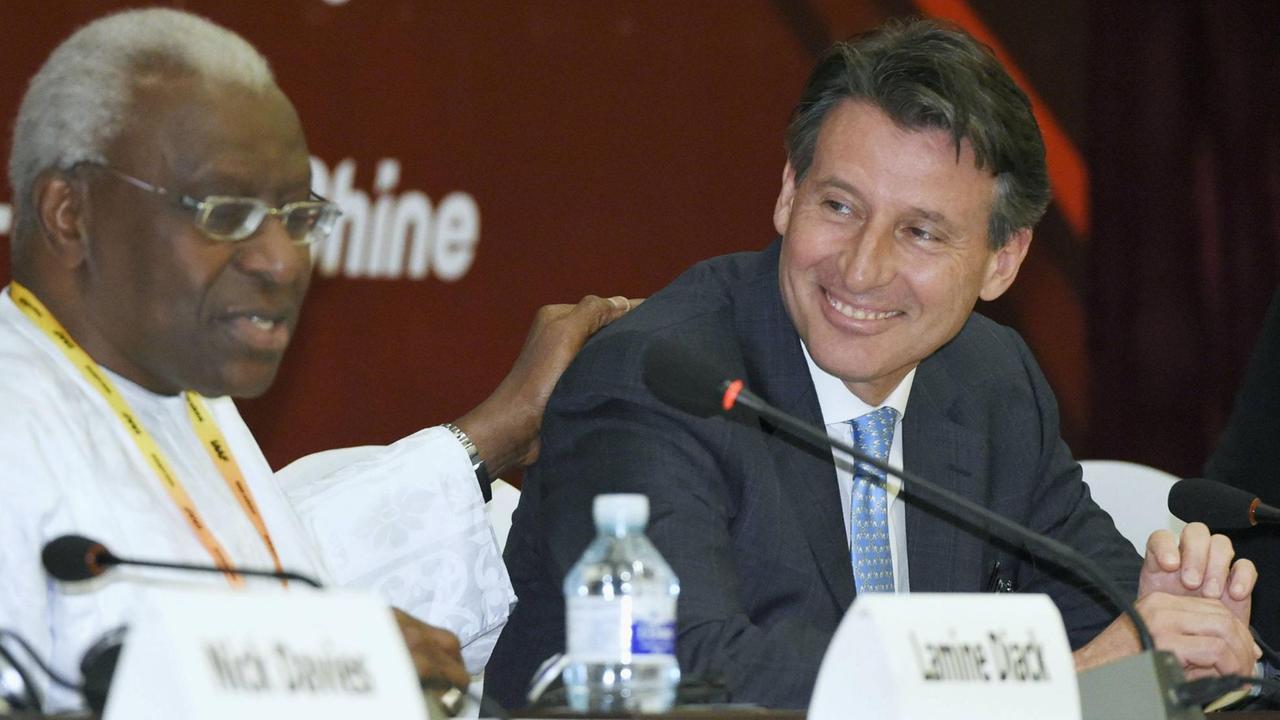
"There need to be fewer disciplines"
Kempe: At the beginning of the interview, Mr. Coe, we spoke about changes in sport. Could you give us some examples. What are your ideas for the future?
Coe: It is very clear to me that the viewing patterns and behaviors of young people have altered. I see it in my own children who are not children any longer, that sort of young adults. You know the days of sitting watching anything for four or five six hours at a time over nine 10 days I'm afraid is a slightly prehistoric concept.
You know they want to watch sport. They want to be able to integrate their viewing with information that is often on second or even third screens. They are keen to evaluate. They're fascinated often by the science and technology. And we have to create formats and patterns of competition that capture their imagination. And if you look at Diamond League for instance which is how many people are absorbing our sport in non-championship years, it is very clear to me that the changes that we are working towards with the Diamond League meeting directors and federations, that are responsible for Diamond League, some of them in their own countries: that we need to be very much more conscious that this is an entertainment package and that for instance that has to be containable probably within an hour and a half an hour and 40 minutes. There need to be fewer disciplines. Those disciplines need to be carefully chosen that we are undertaking a lot of work really for the very first time into what our sponsors are saying, what the media is saying our broadcasters particularly, the athletes themselves. The fan base.
You know we need to understand what people are saying and what they're wanting and really not to adapt to the point where you are losing the basic philosophy of a sport. But we shouldn't have a one-day meetings for instance trying to replicate a World Championships in two hours. That's never going to work.
We have to recognize that is a competitive environment out there. In this example we are vying for space with other sports and we're vying for space with other entertainment. So, if our activity is sport, our business has to be entertainment and that is really important. The second crucial element in all that is we... those formats have to put more money into the pockets of the athletes, and I say that absolutely unashamedly: we have to give the athletes more skin in the game. We have to do everything we possibly can to create better financial structures for those athletes, because they have God given talents and frankly those talents are not being rewarded well enough.
